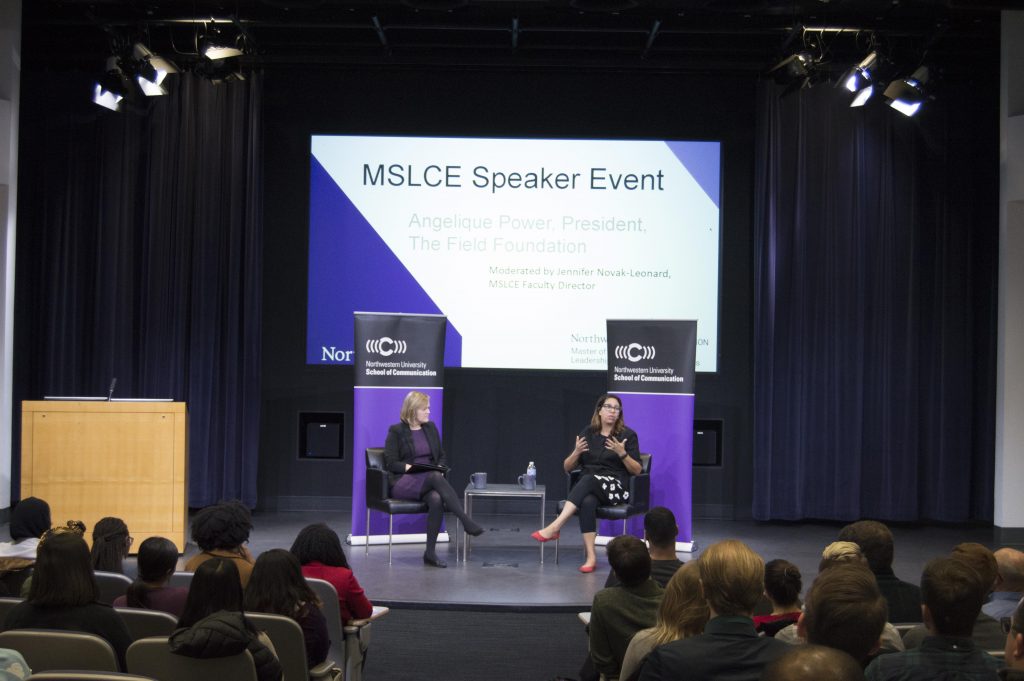
By Jacob Nelson
During the most recent MSLCE Speaker Series event, Field Foundation President Angelique Power asked the audience to define the terms “diversity,” “inclusion,” and “equity.” When the attendees struggled to respond, she asked them to imagine they owned a restaurant.
“Diversity is like keeping your restaurant completely the same and inviting a few people different than you are to enjoy the meal,” Power explained. “Inclusion is checking in on those people who are different to see how they’re doing, and equity is about redefining the whole dining experience… who has the power to own… who has the power to invite… and sharing power and resources.”
These distinctions are incredibly important for Power, who has spent her career in philanthropy trying to challenge the way foundations and benefactors think about their goals and the work they are attempting to accomplish. At Field Foundation, Power oversees the charitable distribution of $2.5 million annually from assets nearing $60 million. Power sees it as her responsibility to ensure that foundations looking to devote resources to local communities do not alienate or offend those communities in the process.
“For a foundation to say it’s interested in ‘community empowerment’ sounds condescending,” Power said. “The connotation is we want to empower the powerless, which is not exactly what we mean. We think there’s a tremendous amount of power in communities.”
Power maintains close ties with the communities her foundation attempts to help. Doing so, she explained, ensures that these bonds are “not transactional, but relational.”
“I see myself as a stakeholder in the organization where I work, and it’s important to me that [the communities] are a stakeholder in return,” Power said.
This means that Power’s job is often to listen and collect information about what is going on in the city of Chicago, specifically in areas that the foundation is looking to serve. This is important when it comes to supporting artistic endeavors, especially in Chicago communities where artistic production take different forms from what people living outside these communities might expect.
“We call these spaces ‘cultural deserts,’” Power said. “Are they? Or do we just not have the right definition of art?”
In order to support the arts in Chicago, Power explained that Field Foundation must first be willing to understand what art production looks like in Chicago.
“Our challenge to ourselves is to come back with asset maps to share all the creative enterprises and productions that are actually happening in the city,” Power said. “We can find it, we can fund it.”